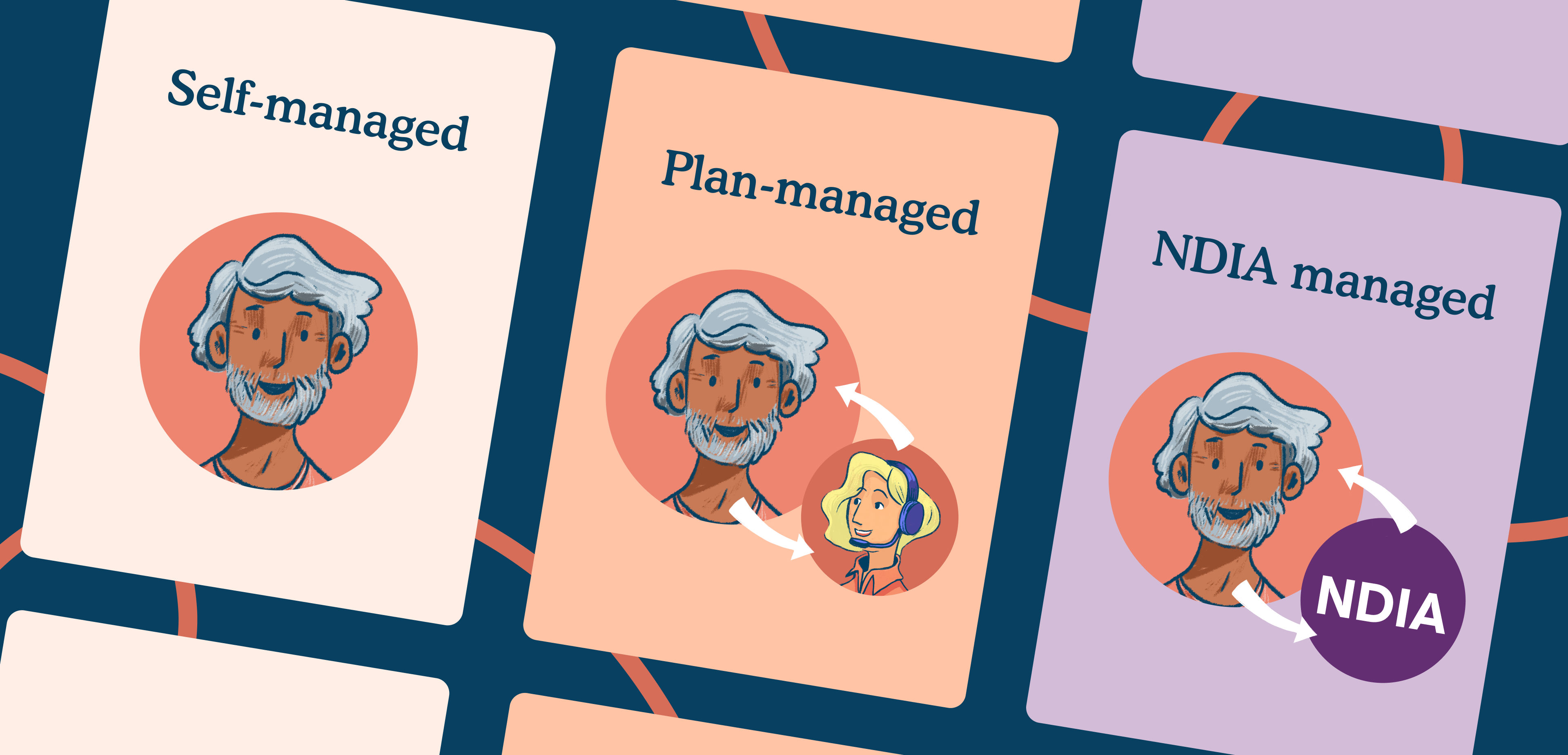NDIS self-managed vs plan-managed vs NDIA managed
When you get a National Disability Insurance Scheme (NDIS) plan, you might learn about self-management, plan management, or National Disability Insurance Agency (NDIA) management. You may manage your plan yourself or get help from either the NDIS or a plan management provider. In this guide, we explain the three main types of NDIS plan management and how to choose the best option for your needs.
What is NDIS self-management?
NDIS self-management means you take full control over your funding. You choose your providers, manage your budget, and pay invoices directly. This option gives you the most flexibility and control.
Benefits of self-management
- More choice over which supports and providers you use
- Ability to negotiate pricing and get the best value for money
- Build skills in managing money and services
- Faster claims processing (often within 24 hours)
What responsibilities would you have when you NDIS self-manage?
When you self-manage your NDIS funding, there are many responsibilities. You need to do things like:
- Make agreements with your support providers
- Pay for your supports
- Keep your invoices and receipts
- Show how you’re using your funding to meet your NDIS goals
- Meet your obligations as an employer if you employ staff directly.
Pros and cons of NDIS self-management
Pros: Budget visibility, faster reimbursements, skill-building, more innovation and adaptability.
Cons: Can be overwhelming, especially for those who are not well-organised or confident in admin tasks. Some find it stressful, though misuse of funds is rare.
To learn more about self-management, you can visit:
- The NDIS self-management guide
- Other self-management resources
- Paul Mangan’s NDIS self-management tips and tricks
If you’re looking for personalised support, our friendly team is here to help. Book a consult to explore how we can support you on your self-managed journey
What is NDIA managed?
NDIA managed (also called agency managed) means the National Disability Insurance Agency handles your plan funds. Your providers claim directly through the NDIS portal.
Benefits of NDIA managed plans
- Bookkeeping and record-keeping is handled for you
- Easy tracking through the myplace portal
- Less administrative responsibility
Limitations of NDIA managed plans
- You can only use NDIS-registered providers
- Less flexibility and choice compared to other management types
If you’re interested in being NDIA managed, speak with your Local Area Coordinator (LAC) or NDIA planner.
Read more about NDIA management.
What is plan management?
Plan management is a middle option between self and agency management. A plan management provider helps pay providers, manage invoices, and track your spending.
Advantages of plan management
- Greater choice: you can use unregistered providers
- No need to handle bookkeeping or admin work
- Helps build financial skills
If you want plan management, ask your LAC or NDIA planner to include funding in your plan. They can also help you find a plan manager.
Read more about NDIS plan management.
NDIS Plan Managed vs Self-Managed vs NDIA Managed: How to Choose?
Not sure which NDIS management style is right for you? Consider the following steps:
- Read official guides, including Easy Read versions from the NDIS.
- Talk to your planner or LAC to see how each option fits your goals.
- Reach out to Five Good Friends - we’re here to help guide your decision.
Switching Between NDIS Management Types
The good news? Your choice isn’t locked in. You can switch at any time:
- Start with plan management and later self-manage parts of your plan.
- Try self-management and move to NDIA or plan management if needed.
No matter how you manage your NDIS funding, Five Good Friends can support you with core supports and support coordination. We’re an NDIS registered provider, ready to answer all your questions.
Book a consult to explore how we can support you.






